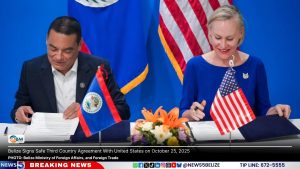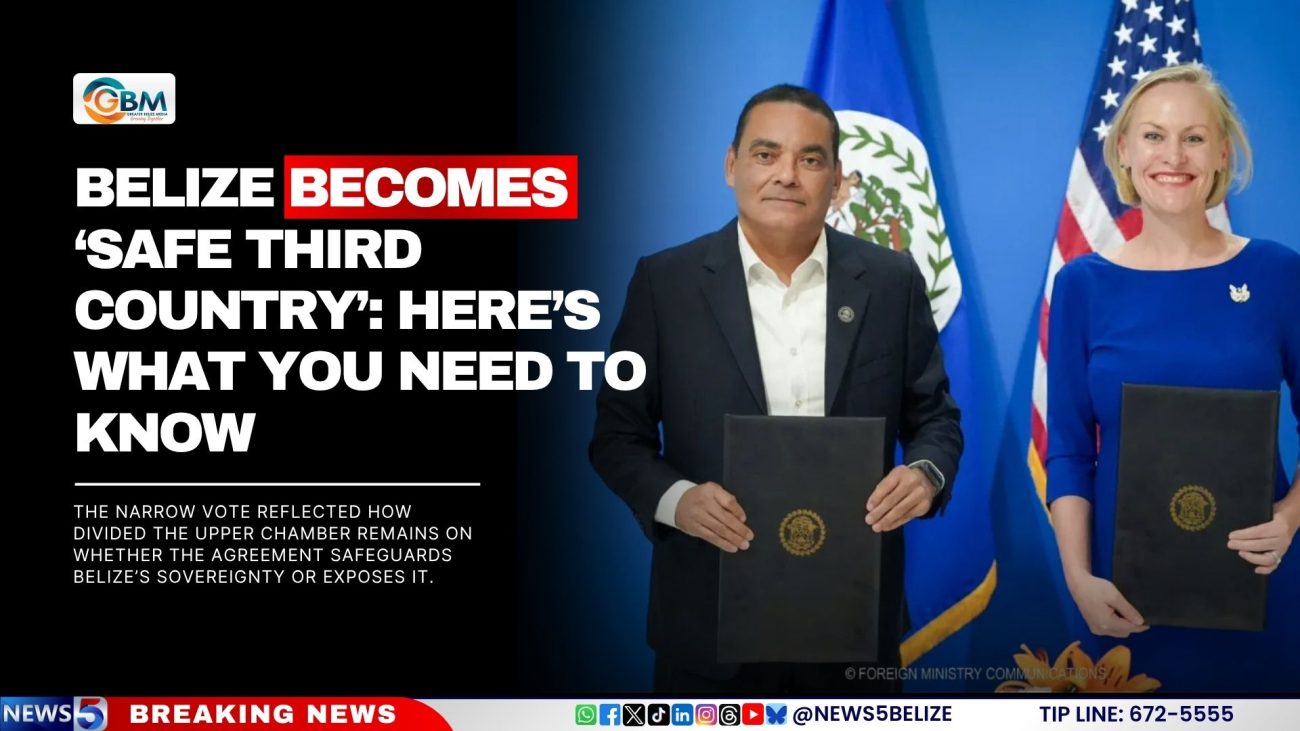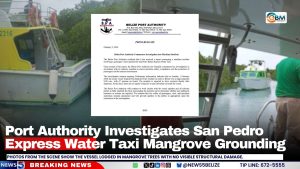Belize Becomes ‘Safe Third Country’: Here’s What You Need to Know
What does it mean for Belize to become a “safe third country”? The Senate spent hours in heated debate on this very same deal, a deal that will see asylum seekers from the United States sent to Belize while their refugee claims are processed.
In the end, the motion was ratified with a vote of 8–5, with Church Senator Louis Wade and Business Senator Kevin Herrera siding with the Government. The narrow vote reflected how divided the upper chamber remains on whether the agreement safeguards Belize’s sovereignty or exposes it.
The government says the agreement, signed on October 20, balances humanity with sovereignty. But Opposition and social partner senators call it a rushed and risky deal.
Where Is the Public in This Process?
Opposition and social partner senators argued that the Government failed to be transparent about what the agreement is.
UDP Senator Patrick Faber said, “We first heard of it via, believe it or not, the U.S. Embassy Chargé d’Affaires. It was not even our own government who came to us and said, ‘Listen, we are engaging with the U.S. in order to try to sign off on this agreement.’” He accused the administration of “compromising Belize’s dignity and independence” for “diplomatic favour” and questioned the rush to move forward without proper consultation.
Union Senator Glenfield Dennison asked, “The people of Belize want to know: what are you really signing this agreement for?” He warned against assuming that criticism of the deal equated to rejecting human rights, saying, “Nobody will gaslight me into thinking that supporting or withholding my support for this agreement is saying whether or not I want to uphold the rule of law.”

Belize Signs Safe Third Country Agreement With United States on October 25, 2025
Dennison added, “Nobody will make me believe that this is a simple arms-length transaction between two friends because inherent in a request by a friend to do something is the ability to say no, thank you.”
Meanwhile, Business Senator Kevin Herrera went further, arguing that the Senate’s briefing was not consultation but presentation. “Consultations mean that you have a legitimate opportunity to give inputs, and those inputs can impact the final outcome or the final product. But when an agreement has been signed, obviously, those inputs cannot have any type of impact on a final product because the agreement was already signed,” he said.
Herrera argued that Belize should not be used as a solution to the U.S.’s immigration problems, saying the country must prioritise its own citizens and sovereignty. He added that such a significant decision should have been put to a referendum to let the Belizean people decide.
What’s in the Fine Print?
According to PUP Senator Hector Guerra, the agreement reflects “control, compassion, and recognition of human rights,” not weakness. “This agreement is an exercise of our sovereignty,” he said.
But what does the deal come down to? Anthony Sylvestre, Leader of Government Business, maintained that this is only a framework agreement that cannot take effect once all legal steps, including amendments to the Refugees Act, are completed.
Sylvestre defended the Government’s decision, stating that Belize’s participation is “an awareness and acceptance of common humanity and the obligation to assist with mitigating the strife of fellow humans.”
He outlined several safeguards to protect Belize’s national interests. It is not every and anyone you give refuge to, not every and everyone you let in your home,” he said. Sylvestre explained that the 2-year agreement limits eligibility to CARICOM and Central American nationals (excluding Guatemalans), sets a cap on the number of applicants to 10 refugees per year, and allows Belize to “terminate or suspend the agreement at any time.”
With votes locked in and the motion now ratified, Belize now stands as a “safe” destination for asylum seekers.






Facebook Comments